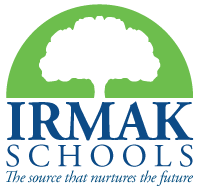Mankind has developed his interaction with the environment in many fields since the birth of civilization. To be able to make this interaction more productive, he began to study the surrounding nature and the physical events. Fundamental Mathematics was first based on lines carved into bones during 30000 – 40000 BC. In time, Mathematics has become the main discipline of science and has since enhanced, branched out and enriched by both known and unknown mathematicians.
In ancient times, Mathematics was only used for simple basic counting, but in time not only has it been a tool to interpret the surrounding physical issues, but with the improvement of logic, the ability to analyze and rationalize reasoning has also advanced, when faced with daily problems.
Nowadays, the Science of Mathematics is so widely used in many different fields, we are completely unaware of the importance and the usage of Mathematics in our daily life. Can you imagine a world without numbers? This is unthinkable. In addition to everyday life, Mathematics is the basis for scientific and technological developments and inventions.
In a world which is constantly changing and developing, it is essential that Mathematics is relayed accurately to the new generation, so that the individual can be fully equipped before starting in life.
Department Goals
In view of the ever changing and evolving mathematics education, the aim, structure and techniques of the school program will enable each student to achieve an understanding of the following:
• Ability to understand the mathematical concepts and systems, form a relationship, apply it both on a daily basis and other fields.
• Achieve the necessary mathematical knowledge and skills to obtain a higher degree both in mathematics and other fields.
• Ability to apply own mathematical knowledge and reasoning in problem solving.
• Ability to correctly apply mathematical terminology to logically describe and share mathematical ideas.
• Ability to enhance problem solving strategies to use on a daily basis.
• Ability to form models and associate these both verbally and mathematically.
• Develop the abilities to be systematic, accurate, tolerant and responsible.
• Develop and improve the ability to research, generate and use information.
• Ability to form a relationship between mathematics and art, enhance the artistic quality.
Department Objectives
The initial aim of our dedicated educational staff is to follow the latest educational theories. In view of these theories and curriculum, class activities are created, enhanced and applied by the introduction of the new technologies into the class environment.
Assist Students to :
• Solve basic mathematical problems
• Obtain the necessary mathematical knowledge to use in higher education.
• Obtain the necessary mathematical knowledge to analyze, interpret and model the daily events in order to make correct decisions.
• Correctly use and master the mathematical terminology.
• Enhance their ability to obtain the necessary mathematical resources and use them correctly.
• Apply the latest technology on a daily basis.
• Have an open-minded attitude towards latest technologies.
• Work in a well-organized and efficient manner
• Develop intellectual ability to think faster and rationally.
• Improve study methods for both national and international Mathematics related exams.


